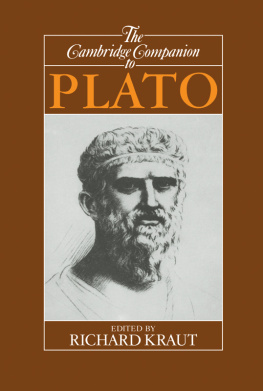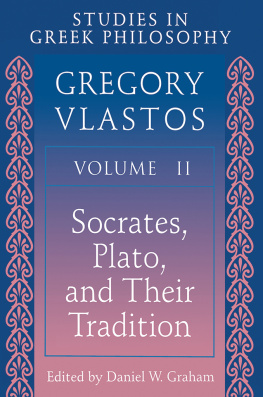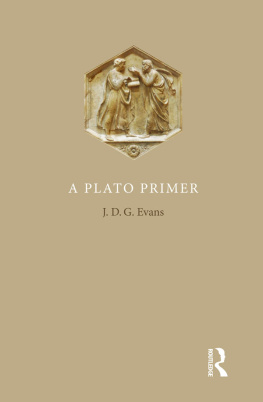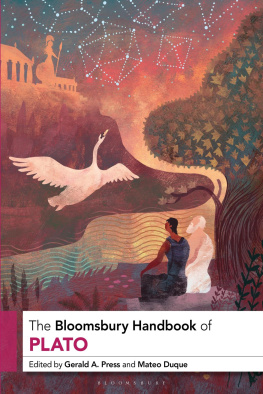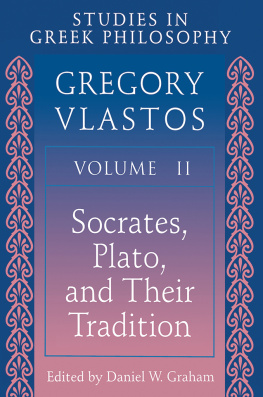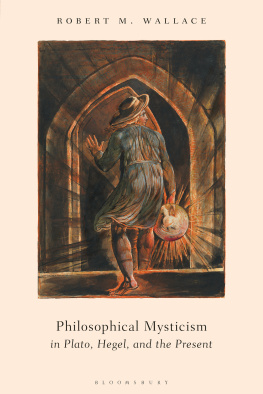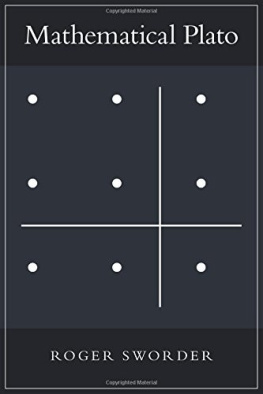This is another volume in the new Cambridge series of companions to major philosophers. Each volume will contain specially commissioned essays by an international team of scholars, together with a substantial bibliography, and will serve as a reference work for students and nonspecialists. One aim of the series is to dispel the intimidation such readers often feel when faced with the work of a difficult and challenging thinker.
Plato stands at the head of our philosophical tradition, being the first Western thinker to produce a body of writing that touches upon a wide range of topics still discussed by philosophers today. In a sense he invented philosophy as a distinct subject, for although many of these topics were discussed by his intellectual predecessors and contemporaries, he was the first to bring them together by giving them a unitary treatment. He conceives of philosophy as a discipline with a distinctive intellectual method, and he makes radical claims for its position in human life and the political community. This volume contains fifteen new essays discussing Platos views about knowledge, reality, mathematics, politics, ethics, love, poetry, and religion. There are also analyses of the intellectual and social background of his thought, the development of his philosophy throughout his career, the range of alternative approaches to his work, and the stylometry of his writing.
New readers and nonspecialists will find this the most convenient, accessible guide to Plato currently available. Advanced students and specialists will find a conspectus of recent developments in the interpretation of Plato.
THE CAMBRIDGE COMPANION TO
PLATO
OTHER VOLUMES IN THIS SERIES OF CAMBRIDGE COMPANIONS:
AQUINAS Edited by NORMAN KRETZMAN and ELEONORE STUMP
ARISTOTLE Edited by JONATHAN BARNES
DESCARTES Edited by JOHN COTTINGHAM
FOUCAULT Edited by GARY GUTTING
FREUD Edited by JEROME NEU
HEGEL Edited by FREDERICK BEISER
HEIDEGGER Edited by CHARLES GUIGNON
HOBBES Edited by TOM SORRELL
HUME Edited by DAVID FATE NORTON
HUSSERL Edited by BARRY SMITH and DAVID WOODRUFF SMITH
KANT Edited by PAUL GUYER
LEIBNIZ Edited by NICHOLAS JOLLEY
LOCKE Edited by VERE CHAPPELL
MARX Edited by TERRELL CARVER
MILL Edited by JOHN SKORUPSKI
NIETZSCHE Edited by BERND MAGNUS
SARTRE Edited by CHRISTINA HOWELLS
SPINOZA Edited by DON GARRETT
The Cambridge Companion to
PLATO
Edited by Richard Kraut
University of Illinois at Chicago

CAMBRIDGE UNIVERSITY PRESS
Cambridge, New York, Melbourne, Madrid, Cape Town, Singapore,
So Paulo, Delhi, Dubai, Tokyo, Mexico City
Cambridge University Press
32 Avenue of the Americas, New York, NY 10013-2473, USA
www.cambridge.org
Information on this title: www.cambridge.org/9780521430180
Cambridge University Press 1992
This publication is in copyright. Subject to statutory exception and to the provisions of relevant collective licensing agreements, no reproduction of any part may take place without the written permission of Cambridge University Press.
First published 1992
22nd printing 2010
A catalog record for this publication is available from the British Library.
ISBN 978-0-521-43018-0 Hardback
ISBN 978-0-521-43610-6 Paperback
Cambridge University Press has no responsibility for the persistence or accuracy of URLs for external or third-party Internet Web sites referred to in this publication and does not guarantee that any content on such Web sites is, or will remain, accurate or appropriate.
FOR GREGORY VLASTOS
19071991
CONTRIBUTORS
ELIZABETH ASMIS is Associate Professor of Classics at the University of Chicago. The author of Epicurus Scientific Method (Cornell University Press, 1984) and numerous articles on Hellenistic philosophy, she is currently working on Greek views of poetry from Plato to the Neoplatonists.
LEONARD BRANDWOOD is Lecturer in the Department of Greek and Latin at Manchester University. He is the author of A Word Index to Plato (W. S. Maney & Son, 1976) and The Chronology of Platos Dialogues (Cambridge University Press, 1990).
G. R. F. FERRARI is Associate Professor of Classics at the University of California, Berkeley. He is the author of Listening to the Cicadas: A Study of Platos Phaedrus (Cambridge University Press, 1987) and of articles on Plato, the pre-Socratics, and archaic Greek culture.
GAIL FINE is Professor of Philosophy at Cornell University. She is the author of numerous articles on the metaphysics and epistemology of Plato and Aristotle. Her book On Ideas: Aristotles Criticism of Platos Theory of Forms is to be published by Oxford University Press.
DOROTHEA FREDE is Professor of Philosophy at the University of Hamburg. She is the author of Aristoteles und die Seeschlacht (Vandenhoeck & Ruprecht, 1970) and has written numerous articles on Plato, Aristotle, later Greek philosophy, and the philosophy of Martin Heidegger. Her translation of Platos Philebus is forthcoming (Hackett Publishing Company).
MICHAEL FREDE is Professor of the History of Philosophy at Oxford University and Fellow of Keble College. He is the author of Prdikation und Existenzaussage (Vandenhoeck & Ruprecht, 1967), Die stoische Logik (Vandenhoeck & Ruprecht, 1974), and (with Gnther Patzig) a translation of and commentary on Aristotles Metaphysics Z (C.H. Beck, 1988). Some of his many papers on Plato, Aristotle, Stoicism, Skepticism, ancient medicine, and ancient grammatical theories have been collected in Essays in Ancient Philosophy (University of Minnesota Press and Oxford University Press, 1987).
T. H. IRWIN is Professor of Philosophy at Cornell University. He is the author of Platos Moral Theory (Clarendon Press, 1977), Aristotles First Principles (Clarendon Press, 1988), Classical Thought (Oxford University Press, 1989), and translations of and commentaries on Platos Gorgias (Clarendon Press, 1979) and Aristotles Nicomachean Ethics (Hackett Publishing Company, 1985), as well as numerous articles on Greek philosophy.
RICHARD KRAUT is Professor of Philosophy at the University of Illinois at Chicago. He is the author of Socrates and the State (Princeton University Press, 1984) and Aristotle on the Human Good (Princeton University Press, 1989) and is currently writing a translation of and commentary on Aristotles Politics: Books VII and VIII.
CONSTANCE C. MEINWALD is Assistant Professor of Philosophy at the University of Illinois at Chicago. The author of Platos Parmenides (Oxford University Press, 1991), she is currently working on Platos late metaphysics.
MICHAEL L. MORGAN is Professor of Philosophy at Indiana University, Bloomington. He is the author of Platonic Piety: Philosophy and Ritual in Fourth-Century Athens (Yale University Press, 1990) and has written numerous articles on Plato as well as on Jewish thought.
IAN MUELLER is Professor of Philosophy at the University of Chicago. He is the author of Philosophy of Mathematics and Deductive Structure in Euclids Elements (MIT Press, 1981), as well as numerous articles on ancient Greek philosophy, science, and mathematics. He is currently preparing a translation of Alexander of Aphrodisiass commentary on Aristotles
Next page
